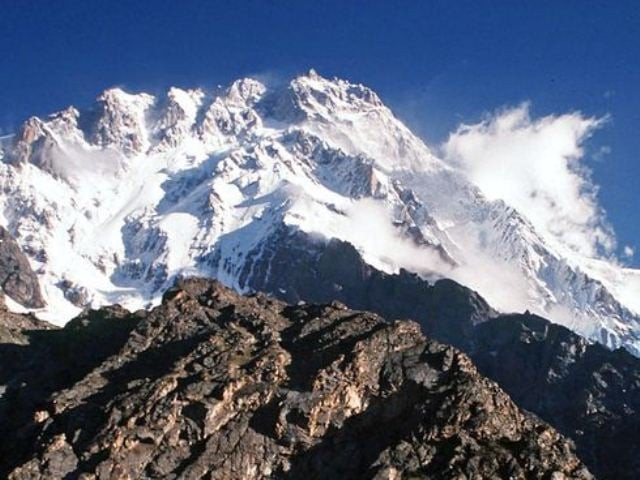Imminent threat: ‘To fight climate change, look to the mountains’
Need for research on mountainous ecosystems stressed.

A file photo of the Himalayas. PHOTO: AFP
Speakers at the conference on Himalayan Adaptation, Water and Resilience Research on Glacier and Snowpack Dependent River Basins for Improving Livelihood said that better research was needed on mountains to understand the stability of fragile ecosystems.
Addressing the conference at New Senate Hall of University of Agriculture Faisalabad (UAF), Vice Chancellor Iqrar Ahmad Khan said climate change had no borders.
He said that a ministry should be set up to devise policies to combat climate change.
He said Pakistan was witnessing climate variability. He said this year, wheat production had dropped by 10 mounds per acre.
He said researchers should come up with better adaptation approaches and recommend out-of-the-box solutions.
He said mango trees were not bearing enough fruit. He said combating food insecurity was a priority of the government but it had failed to understand the link between food insecurity and climate change.
He said it was feared that due to climate variability this year Swat Valley would not produce as many apples as it did last year.
He said the UAF had set up an academic chair on climate change in the USAID-funded Centre for Advanced Studies in Agriculture.
He said UAF scientists were studying historic climate trends and collecting data to predict the impact of climate change on crop productivity and the economy.
The project, he said, included calibration of crop models for wheat, rice and cotton.
In his keynote address, Dr Ashfaq Ahmad Chatha, head of the climate change chair, warned that overall temperatures would rise by 2.8 degrees by 2040.
He said current data should be used for forecasting and planning. He said this year, wheat production had fallen due to thunderstorms. He said climate variability was hampering the agricultural system.
He said under the Agricultural Model Inter-Comparison and Improvement Project (AgMIP), researchers from 43 countries were working on developing climate change scenarios for their regions to determine the impact of a changing climate on crop production.
The International Centre for Integrated Mountain Development Water Resources Management chief scientist Philippus Wester said that his organisation supported regional programmes on climate change.
He said it was working to develop economically and environmentally-sound mountain ecosystems to improve living standards of mountain populations and to sustain vital ecosystems.
He said one-third of humanity was dependent on Hindukash, Karakoram and Himalayan mountains.
He said rising temperatures were resulting in glacier melting.
Published in The Express Tribune, May 13th, 2015.



















COMMENTS
Comments are moderated and generally will be posted if they are on-topic and not abusive.
For more information, please see our Comments FAQ